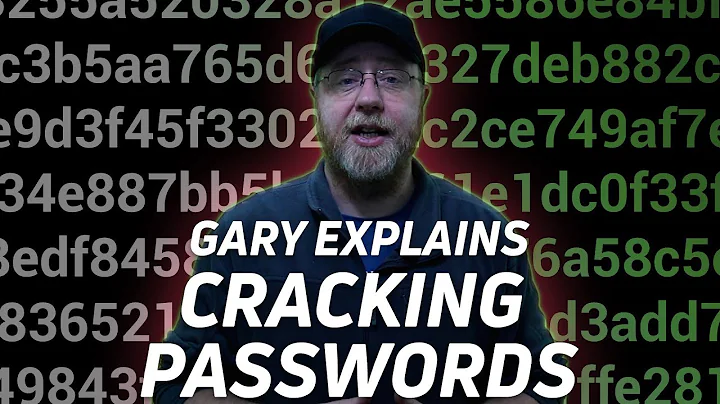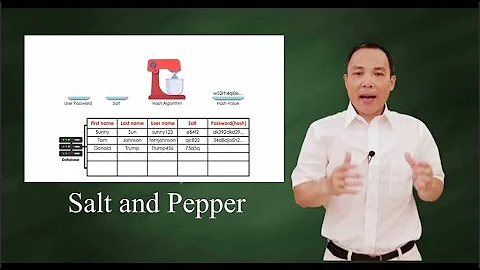What hash algorithms can I use in preseed's passwd/user-password-crypted entry?
Solution 1
You can use anything which is supported in the /etc/shadow file. The string given in the preseed file is just put into /etc/shadow. To create a salted password to make it more difficult just use mkpasswd with the salt option (-S):
mkpasswd -m sha-512 -S $(pwgen -ns 16 1) mypassword
$6$bLyz7jpb8S8gOpkV$FkQSm9YZt6SaMQM7LPhjJw6DFF7uXW.3HDQO.H/HxB83AnFuOCBRhgCK9EkdjtG0AWduRcnc0fI/39BjmL8Ee1
In the command above the salt is generated by pwgen.
Solution 2
Looking at the appropriate part of the debian-installer source
code we
can see that it simply calls usermod USER --password=CRYPTED-PASSWORD inside
the target chroot.
Further usermod's manpage susggests that the --password option accepts "The
encrypted password, as returned by crypt(3)." and that "The password will be
written in the local /etc/passwd or /etc/shadow file.". This suggests we can
only use the crypted password formats described in the crypt(3) man page.
All hope is not lost however. From the aforementioned man page we learn that
crypt actually includes a salt field in the crypted password string, the format
being $hash_id$salt$hash. So at least in principle it should be resistant against rainbow tables.
Apart from rainbow table attacks we still have to consider brute-force attacks. If we look at the glibc implementation of
crypt
we see that it actually implements password stretching using multiple rounds of
SHA-512 not entirely unlike but, unfortunately, not using a standard approach such as
PBKDF2.
Furthermore we see that we can actually control the number of hash rounds
applied by crypt using an additional field in the crypted password
($rounds=$). Looking at the mkpasswd(1) man page we find this exposed as the
-R option. Using this feature we can significantly raise the default number of
rounds of 5000 (see ROUNDS_DEFAULT in the source code) which on my machine
takes less than a couple of milliseconds to calculate to, say, 10 million which
takes a couple of seconds instead:
> mkpasswd -R 10000000 -m sha-512 mypassword
$6$rounds=10000000$Rq30Hdd.0LzWq3x$XRXHvd5MnIi5MD2H8Jtn5W0cjvq4siGtUgWUaETc4QZyvuR4iY0Af.DoNfj1E6SvoHaVotAEjIiOPS3GvwJjM0
Related videos on Youtube
Arseni Mourzenko
Developer, architect, project manager, tester, and active DevOps supporter, I'm studying, observing and advising companies which have an important risk to fail their IT-related projects. I specialize in quality and productivity. After six years of freelancing, I worked for several companies, including Tata Consultancy Services. Today, I'm a happy member of Finaxys. I mostly work with Linux, Python, and Node.js, as well as the Microsoft stack. Outside information technology, I'm interested by photography. I'm mostly active on SE.SE, and also maintain my blog. If you want to contact me, my email is [email protected]. Feel free to drop me a note about any development-related discussions. If you live in Paris or want to visit Paris, you're very welcome to contact me too.
Updated on September 18, 2022Comments
-
Arseni Mourzenko almost 2 years
When it comes to
passwd/user-password-cryptedstatement in a preseed file, most examples use an MD5 hash. Example:# Normal user's password, either in clear text #d-i passwd/user-password password insecure #d-i passwd/user-password-again password insecure # or encrypted using an MD5 hash. #d-i passwd/user-password-crypted password [MD5 hash]From Debian's Appendix B. Automating the installation using preseeding.
A few sources show that it's also possible to use SHA-512:
Try using a hashed password like this:
$ mkpasswd -m sha-512[...]
And then in your preseed file:
d-i passwd/user-password-crypted password $6$ONf5M3F1u$bpljc9f1SPy1w4J2br[...]From Can't automate user creation with preseeding on AskUbuntu.
This is slightly better than MD5, but still doesn't resist well against brute force and rainbow tables.
What other algorithms can I use? For instance, is PBKDF2 supported, or am I limited by the algorithms used in
/etc/shadow, that is MD5, Blowfish, SHA-256 and SHA-512? -
Arseni Mourzenko almost 8 yearsThe
yargument should be removed: including symbols in the salt would usually lead to the error "Illegal salt character '...'." because the authorized characters are rather limited. -
Royce Williams over 2 yearsA couple of symbols -
.and/- are valid - see Daniel G'scrypt/mkpasswdanswer.






